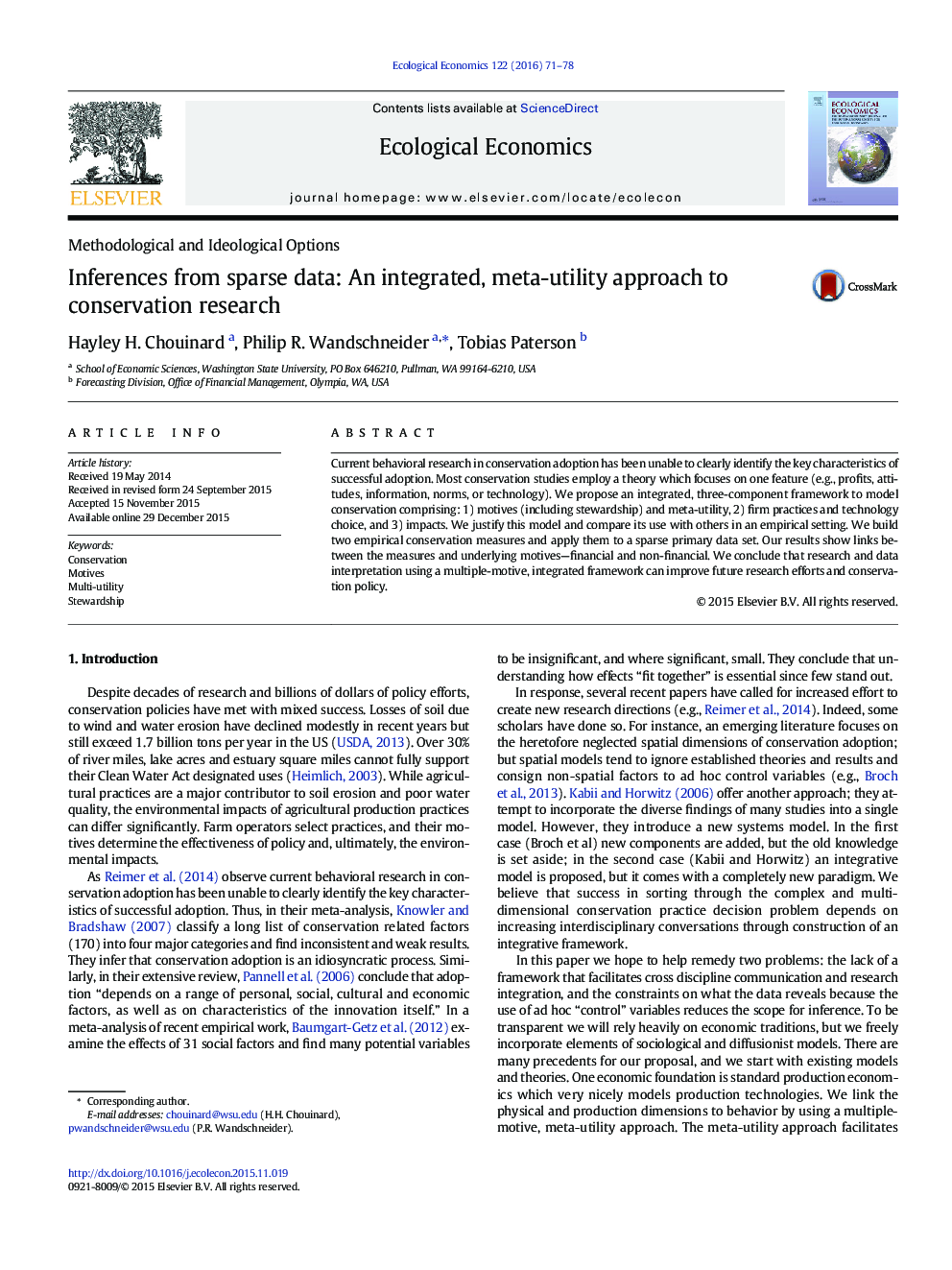| Article ID | Journal | Published Year | Pages | File Type |
|---|---|---|---|---|
| 5049137 | Ecological Economics | 2016 | 8 Pages |
Current behavioral research in conservation adoption has been unable to clearly identify the key characteristics of successful adoption. Most conservation studies employ a theory which focuses on one feature (e.g., profits, attitudes, information, norms, or technology). We propose an integrated, three-component framework to model conservation comprising: 1) motives (including stewardship) and meta-utility, 2) firm practices and technology choice, and 3) impacts. We justify this model and compare its use with others in an empirical setting. We build two empirical conservation measures and apply them to a sparse primary data set. Our results show links between the measures and underlying motives-financial and non-financial. We conclude that research and data interpretation using a multiple-motive, integrated framework can improve future research efforts and conservation policy.
